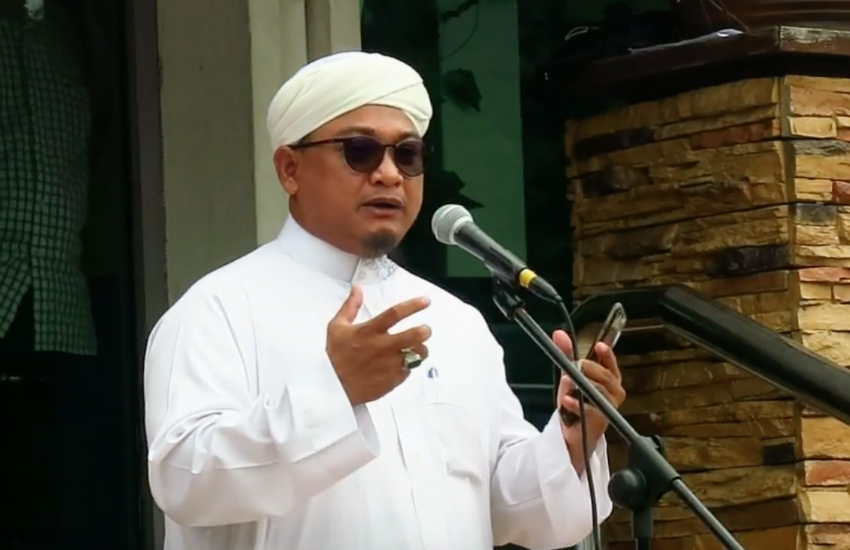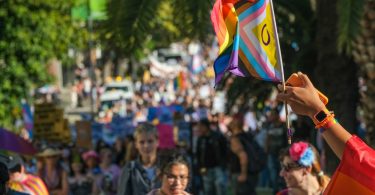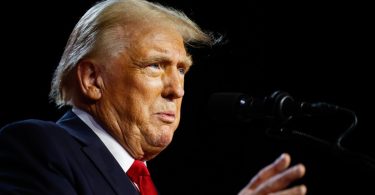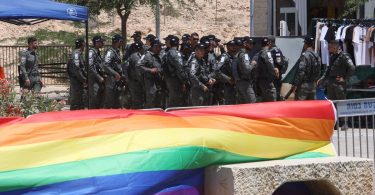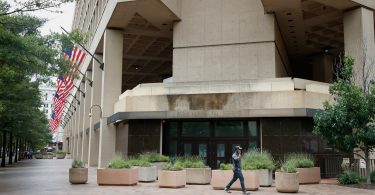Nasrudin Hassan giving a speech in July | Photo: Youtube/minaq jinggo
A politician from an Islamist party in Malaysia has defended a sermon which said the government should take ‘stern action’ against the country’s LGBTI community.
Nasrudin Hassan also hit out at the religious affairs minister for meeting with a transgender rights activist.
Nasrudin is the information chief for the Malaysian Islamic Party, or PAS as they are commonly known.
He rebutted criticism which suggested that the sermon, held by a regional council, was provoking discord and defended anti-LGBT laws.
‘In the sermon, it was merely pointed out that illegal sexual activities involving the LGBT community are against Islam, and that the government should take stern action against them instead of catering to the LGBT community’s requests,’ Nasrudin said.
‘How can this be considered as inciting hatred against the government and causing disharmony? We merely want the government to take action.’
Nasrudin also attacked religious affairs minister Mujahid Yusof Rawa for ‘saying that religion should be free from politics.’
He was referencing Mujahid’s meeting with transgender woman and LGBTI rights activist, Nisha Ayub, earlier this month, the New Straits Times reported.
‘Why is there no action being taken against the LGBT community, which is now so outspoken?
‘Islam and politics cannot be separated in Islam, (as religion) should be the guide for leaders on how to manage a country,’ he said.
PAS is an Islamist political party known for their hardline conservative values, and has support and influence in the northern states of Peninsular Malaysia.
PAS also controls the north-eastern state of Terengganu, which made headlines earlier this month for sentencing two women to be caned for same-sex relations.
An escalating war of words
Nasrudin’s comments come at a time where vocal disagreements between LGBTI rights groups and Islamic leaders continue to intensify in the Muslim-majority country.
Disputes between the two sides came to a head earlier this month, after minister Mujahid ordered the removal of portraits of two LGBTI activists holding the Malaysian national flag from a photography exhibition at a popular arts festival.
Rights groups were quick to condemn the move, which they said was akin to censoring Malaysia’s LGBTI community. In turn, Islamic leaders began affirming their stance against homosexuality, which in some cases have essentially amounted to abuse.
This took a startling turn earlier this month when two women were sentenced to caning for same-sex sexual activity in Terengganu, which came as a shock to many both in and outside of Malaysia.
This month also saw Malaysian police raid an iconic Kuala Lumpur gay club for the first time in its 30-year history.
In the midst of this, the new government, Pakatan Harapan, has been sending out a ‘series of mixed messages’ with regards to LGBTI rights, thereby appeasing neither side and possibly prolonging the dispute.
Homosexuality is illegal in Malaysia under a statute from the British colonial era and remains a socially and politically polarising issue. A 2013 Pew Research survey found that 86% of Malaysians believed that homosexuality should not be socially accepted, with only 9% believing it should.

